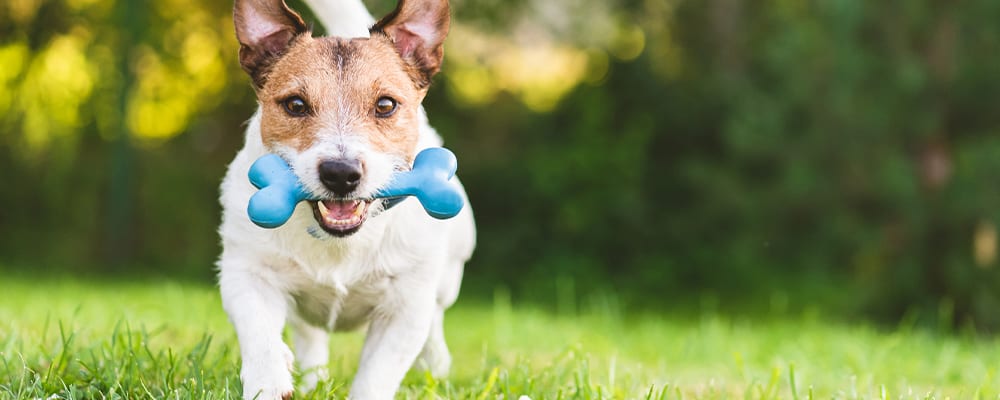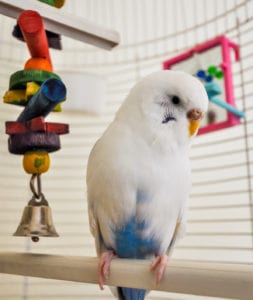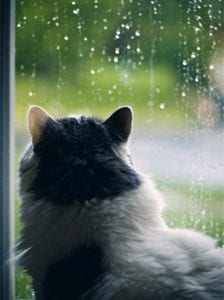
Summer in Callaway is a warm and wonderful time of the year for many of us and our pets! However, the extreme heat and severe weather bring about some dangers to which our pets can be particularly vulnerable. Whether furry, feathered, scaled, or finned, your pet needs extra care in the summer sun. Our animal hospital has gathered some summer pet safety tips for you and your family so you can all enjoy the season to its fullest.
Tips for Staying Cool
For furry friends:
Cats, dogs, and small mammals can get heated quickly due to their coats and inability to sweat like we do. Keep them from overheating with these simple tips:
- NEVER leave your pet in a parked car. The temperature inside can rise dramatically in only a few minutes, causing heatstroke, suffocation, and even death. Leave your pet at home or take them out with you!
- Make sure to take daily walks earlier in the day or later in the evening to avoid the hottest times of day.
- Stay off hot pavement as the asphalt can burn their paws, while the radiating heat can raise their body temperature too quickly.
- If your pet is outside in the heat for any length of time, keep them hydrated with plenty of cool fresh water, and make sure they have a shady place to lie down and rest.
- For smaller pets such as rodents, rabbits, or chinchillas who are kept in enclosures, make sure their habitats are kept out of direct sunlight for most of the day and that they have plenty of airflow and ventilation. If they are kept outdoors, put them in the shade and ensure they have access to fresh, cool drinking water.
- Parasites love the heat, too! Keep your pet’s parasite prevention up to date to avoid any infestations and stave off any nasty pests. If your pet is currently unprotected, talk to your veterinarian about preventive options!
 For feathered and scaled friends:
For feathered and scaled friends:
Birds and reptiles can typically handle warmer temperatures than their furry counterparts, however, they still have their limits!
- Bird cages need to be kept somewhere that receives both sunlight and shade throughout the day, with good ventilation. A regular supply of water is also always important to helping birds stay cool.
- Reptiles, while they often warm themselves in the sun, also need cooler places to rest in their enclosures. Make sure they have a good bit of shade and cool, fresh water as well.
For finned friends:
Pet fish are not as low-maintenance as you may think. If your water garden houses some koi or goldfish in a pond, make sure to keep it cool!
- Rising temperatures, particularly over 85 degrees, cause water to lose its ability to hold oxygen, meaning your fish have a harder time breathing. Make sure your pond is well-shaded, either with natural cover such as lily pads, trees, and bushes or built structures such as tarps or awnings.
- Aerate the water with a fountain, waterfall, or aerator which helps control the water temperature by moving cooler water from the bottom, releasing heat, and oxygenating the water.
- Keep your pond full at all times, as a full pond warms much more slowly. However, if adding cooler water, add it slowly, and try not to add in water that is any more than 10 degrees cooler in order to help your fish adjust without stress.
- Parasites and bacteria can affect fish just as well as mammals! Protect your koi with pond salt, an untreated salt that improves their slime coat when added to the water.
 Severe Weather and Hurricane Safety
Severe Weather and Hurricane Safety
For any pet, it’s important that you have a plan in place to take care of them in case of an emergency situation. Dogs, cats, small animals, birds, and reptiles should all be taken with you in case of an evacuation from a hurricane. Ensure you have a proper carrier for them, with plenty of food and water, as well as their ID information and medical records (particularly vaccines for dogs, cats, and ferrets).
Koi in your pond will likely have to weather out the storm, but you can keep them safe by taking a few precautions. If you’re expecting a lot of rainfall, drain the pond to a lower level to avoid flooding. Secure fine mesh netting over the top of the pond to protect against debris getting in (and no koi getting out!). Stop feeding your koi a few days before the storm, as well. Stressed koi will not eat, and any lingering food in the water can add ammonia to the pond which causes a decrease in oxygen levels. Koi can survive without food for some time, but not without oxygen!
For any other tips about summer pet safety this season, please don’t hesitate to get in touch with our animal hospital. We look forward to hearing from you!

 For feathered and scaled friends:
For feathered and scaled friends: Severe Weather and Hurricane Safety
Severe Weather and Hurricane Safety